Geotechnical Engineering
Drilling
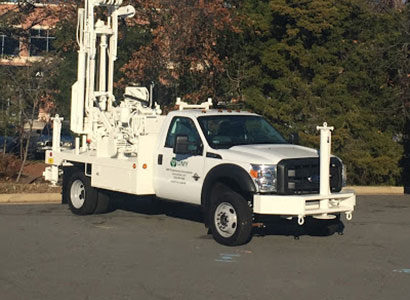
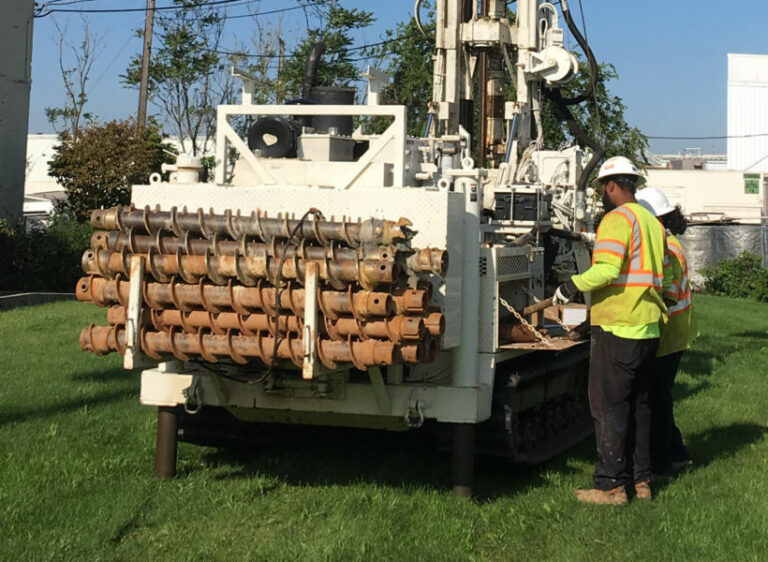
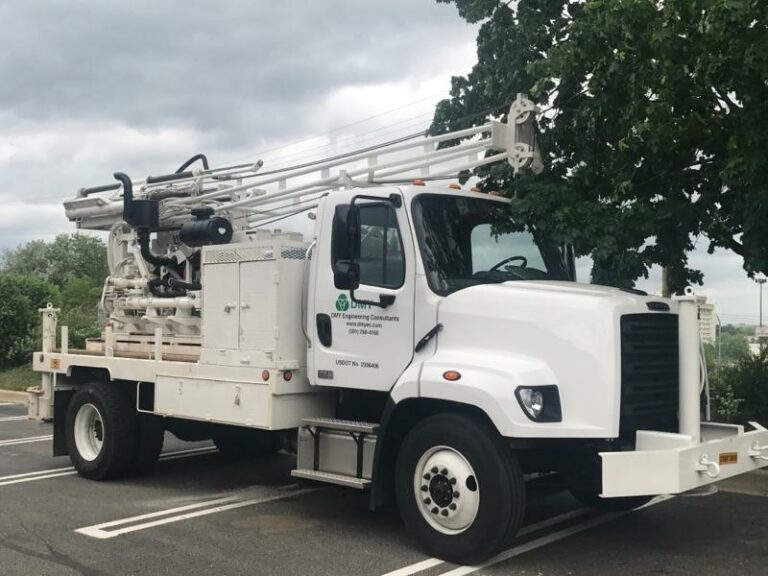
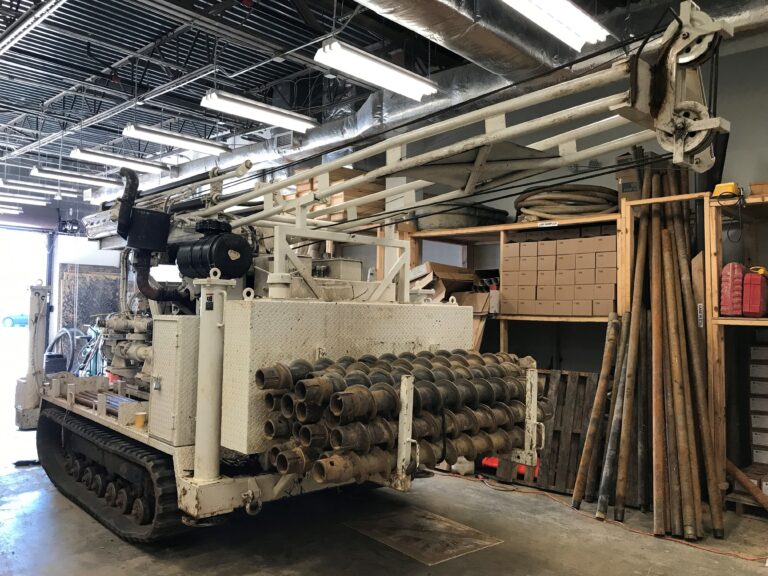
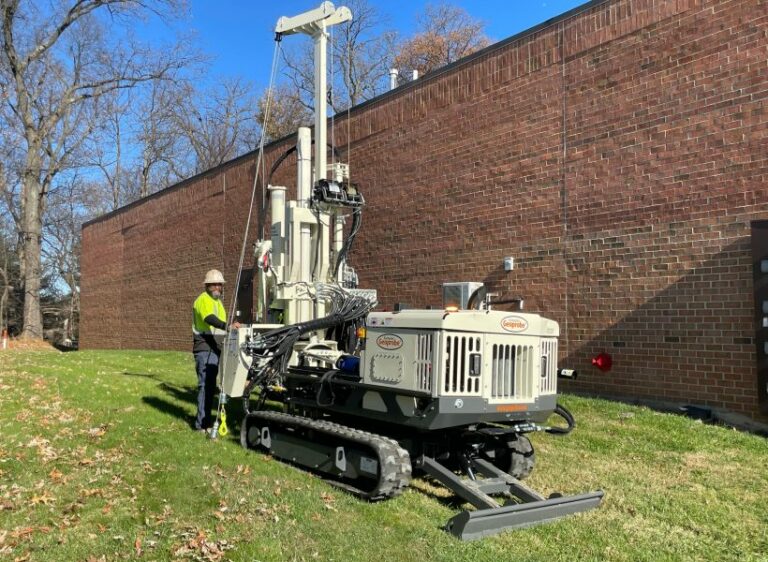
We use ATV and truck-mounted CME 45C and CME 55 drill rigs, each equipped with an automatic hammer and rock coring capability. The DMY drilling fleet also includes a Geoprobe 7822DT, various trucks, trailers and supporting vehicles and tools. DMY’s drilling personnel have experience with drilling in various geologic, geographic and topographic environments.
Conducting geotechnical drilling in the District of Columbia involves a precise and methodical approach by specialized firms to gather subsurface information critical for engineering design, construction, and infrastructure development. Here’s a detailed description of how such firms typically execute geotechnical drilling projects in the region:
- Site Investigation Planning: Before commencing drilling operations, geotechnical engineers thoroughly review project requirements, site conditions, and available geological data. They develop a comprehensive site investigation plan that outlines drilling locations, depths, sampling methods, and testing protocols.
- Permitting and Regulatory Compliance: Geotechnical firms obtain all necessary permits and approvals required to conduct drilling activities in the District of Columbia. This may involve securing permits from local regulatory agencies and ensuring compliance with environmental regulations and land use restrictions.
- Equipment Mobilization: Specialized drilling equipment and tools are mobilized to the project site. This equipment may include drill rigs, augers, drill bits, sampling tools, soil logging equipment, and safety gear. The selection of equipment depends on factors such as soil type, drilling depth, accessibility, and project specifications.
- Site Preparation: Before drilling begins, the project site is prepared to facilitate safe and efficient drilling operations. This may involve clearing vegetation, establishing access roads, setting up safety barriers, and installing environmental protection measures to prevent soil and water contamination.
- Drilling Operations: Geotechnical drilling commences according to the site investigation plan. Experienced drillers operate the equipment under the supervision of geotechnical engineers. Various drilling methods may be employed based on soil conditions and project requirements, including:
- Auger Drilling: Used for shallow soil exploration and sampling in cohesive soils and loose granular materials.
- Rotary Drilling: Employed for deeper penetration into dense or hard strata using rotary drill bits and drilling fluids to advance the borehole.
- Percussion Drilling: Suitable for penetrating hard rock formations using repeated hammering or impact.
- Soil Sampling and Testing: As drilling progresses, soil samples are collected at specified intervals or depths using sampling tools such as split-spoon samplers, Shelby tubes, or core barrels. These samples are carefully labeled, preserved, and transported to the laboratory for geotechnical testing. In-situ tests, such as Standard Penetration Tests (SPT) or Cone Penetration Tests (CPT), may also be conducted to evaluate soil properties.
- Geological Logging: Geotechnical engineers log the geological characteristics of the borehole, including soil types, stratigraphy, groundwater levels, and any encountered anomalies or geological features. This logging provides valuable insights into subsurface conditions and helps in interpreting the drilling results.
- Monitoring and Safety: Throughout the drilling process, engineers monitor drilling parameters, equipment performance, and site conditions to ensure safety and quality control. Measures are implemented to mitigate risks associated with drilling operations, including the prevention of soil collapse, groundwater contamination, and equipment malfunctions.
- Data Analysis and Reporting: Upon completion of drilling activities, geotechnical engineers analyze the collected data, including soil test results, geological logs, and in-situ measurements. They prepare comprehensive geotechnical reports summarizing the findings, interpretations, and recommendations for foundation design, construction techniques, and risk management strategies.
- Client Consultation and Recommendations: Geotechnical firms collaborate closely with project stakeholders, architects, engineers, and developers to provide expert advice and recommendations based on the drilling results. They offer insights into foundation design options, site suitability assessments, and mitigation measures to address potential geotechnical challenges.
By following this detailed process, DMY Capitol conducts thorough drilling investigations in the District of Columbia, contributing valuable geotechnical data and insights essential for informed decision-making and successful project outcomes.
Have questions for us? Fill out the form an agent will reach you out.
DMY Capitol has strong teaming relationships with some of the most established architecture/engineering firms, contractors and developers in the area. If you would like to learn more about the firm and/or discuss future teaming opportunities contact David Arwood at 202.741.9159 or email at darwood@dmycapitol.com.